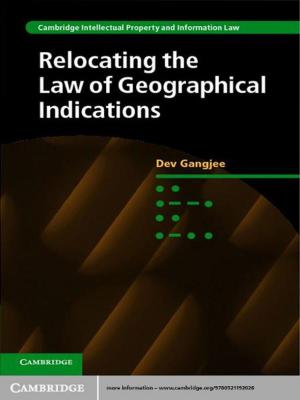WTO Disciplines on Agricultural Support
Seeking a Fair Basis for Trade
Nonfiction, Reference & Language, Law, Commercial, Business & Finance| Author: | ISBN: | 9781139063937 | |
| Publisher: | Cambridge University Press | Publication: | March 31, 2011 |
| Imprint: | Cambridge University Press | Language: | English |
| Author: | |
| ISBN: | 9781139063937 |
| Publisher: | Cambridge University Press |
| Publication: | March 31, 2011 |
| Imprint: | Cambridge University Press |
| Language: | English |
Farm support is contentious in international negotiations. This in-depth assessment of the legal compliance and economic evaluation issues raised by the WTO Agreement on Agriculture presents consistent support data and forward-looking projections for eight developed and developing countries (EU, US, Japan, Norway, Brazil, China, India, Philippines), using original estimates where official notifications are not available. Variations over time in notified support in some cases reflect real policy changes; others merely reflect shifts in how countries represent their measures. The stalled Doha negotiations presage significantly tighter constraints for developed countries that provide the highest support, but loopholes will persist. Developing countries face fewer constraints and their trade-distorting farm support can rise. Pressure points and key remaining issues if a Doha agreement is reached are evaluated. Vigilant monitoring for compliance of farm support with WTO commitments will be required to lessen its negative consequences whether or not the Doha Round is concluded.
Farm support is contentious in international negotiations. This in-depth assessment of the legal compliance and economic evaluation issues raised by the WTO Agreement on Agriculture presents consistent support data and forward-looking projections for eight developed and developing countries (EU, US, Japan, Norway, Brazil, China, India, Philippines), using original estimates where official notifications are not available. Variations over time in notified support in some cases reflect real policy changes; others merely reflect shifts in how countries represent their measures. The stalled Doha negotiations presage significantly tighter constraints for developed countries that provide the highest support, but loopholes will persist. Developing countries face fewer constraints and their trade-distorting farm support can rise. Pressure points and key remaining issues if a Doha agreement is reached are evaluated. Vigilant monitoring for compliance of farm support with WTO commitments will be required to lessen its negative consequences whether or not the Doha Round is concluded.















